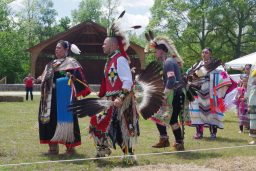Indigenous tribes

By: Duvona Chaviss
Indigenous tribes have endured many evolutionary changes since the 1500s, ranging from changes in their system of government, their cultural practices, their dietary habits, and the languages they spoke to changes in the tribal names they identified with. Most of these changes were significant and had a negative impact on their lives. Specifically, the loss of tribal governments across the US resulted in most tribes struggling centuries later with trying to revive a government that somewhat resembled one they had previously governed themselves. Some tribes were successful with restoring a government that primarily incorporated traditional culture while most adopted a form of government that resembles that of the US government. All of America’s Indigenous people have been negatively affected by changes that were beyond their control in dietary practices. Although genetics are highly implicated, adapting to a diet based heavily on refined wheat as a staple rather than a traditional diet based on unmodified corn has had catastrophic and disproportionate effects on rates of obesity, diabetes, and heart disease. The replacement of bison with European cattle, plant-based milk with animal milk, whole grain diets with sugary based foods and the loss of quality seafood have resulted in profound and disproportionate rates in kidney disease, where some Indigenous tribes in the US have the highest rates of kidney disease in the world. In addition to forced changes in diet, the introduction of alcohol resulted in some tribes having the highest mortality rates in the US, one that mirrors rates seen on some islands in the Caribbean. The loss of traditional culture along with the European practice of “killing the Indian to save the man” in thousands of Indigenous children, one that punished those who spoke their language and prohibited children from seeing their parents, resulted in profoundly negative effects on the mental health of many Indigenous survivors today. Disproportionate rates in the mental health status of American Indians are also seen today. Tribal names were changed or altered if they were difficult to pronounce. Many names were shortened and many tribes were given new names altogether. While seemingly insignificant, Chowanoke pronunciation gradually evolved from Chawanook, (pronounced Shaa’-a-nook) to Chowanoke (Cho-‘ah-noke). It was easier to pronounce the latter. However, as tribes begin to revive their traditional languages, those once thought of as complicated and very long names are starting to resurge. As decolonization begins, the revival of Indigenous culture ensues, and the bison return.